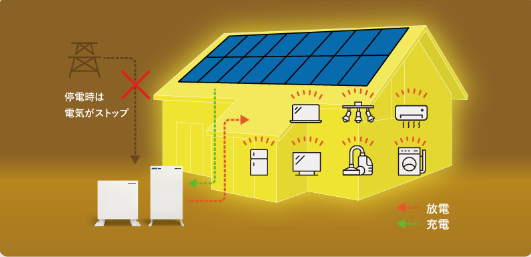There are three basic solar energy conversion methods, but it is important to choose one that best meets your needs. The first is the power tower, which uses flat mirrors to track the sun and concentrate its heat on a tower’s top. The Californian Solar One/Two plant, which produced 10 MWe for a few years, used molten salt heated to 1,000 degC to create steam to run a turbine. The other two methods are the parabolic trough, which uses a trough to collect rays and direct them to a collector.
Another option is to use a grid-tied solar system, which uses a PV array, an inverter, and a metering system. Grid-tied solar systems are not connected to the utility grid, so they shut down in the event of a power cut. These systems use conventional power grids to combine various power sources and distribute them to end users. In addition to the power grid, these systems are more expensive than the other renewable sources.
The other option is a grid-tied solar system, which uses a solar panel array with a metering system to connect to the utility grid. Grid-tied solar systems are connected to the utility grid. If there is a power cut, they shut down in case of a grid-tied solar system. These systems are often considered to be more environmentally friendly, as current flow back into the grid could cause major faults.
The second option is a Cooperative Solar Project. This initiative aims to produce solar energy at a low cost. Members of the Cooperative Solar Project share a pool of electricity, and can sell it back to the company. The cost of operating a solar panel is very low, so it is a good option for the average home. They do not require fuel, and they can generate a significant amount of electricity for the entire community.
Solar power generation is the fastest growing renewable energy source, and it is the most promising. The demand for electrical energy is increasing rapidly, and with it, the demand for solar energy. As a result, solar panels have become a viable alternative. Besides, they are a great source of electricity. The electricity they generate from solar panels is free and renewable. It also provides a clean and green source of power. This energy is not only useful to the community, but also affordable for many people.
In addition to solar panels, the Cooperative Solar Project uses parabolic reflectors to collect the sun’s heat. The heat from the solar panels is used to power a Stirling cycle engine. The system requires hydrogen gas to generate electricity, and the gas is pressurized by the solar heat. The hot hydrogen working fluid is cooled in a closed cycle. In this type of Solar power generation, the waste heat is transferred to the ambient air.
A solar panel system is a combination of a solar panel and a battery. A grid-tied solar system is part of the utility grid, and therefore, any power generated by a solar power generation system can be exported to the rest of the world. This type of grid-tied solar power generation is ideal for countries in the Middle East and North Africa, as it is relatively inexpensive and can be exported to the United States and other countries.
The grid-tied solar system uses parabolic reflectors to collect solar energy. The system is linked to the utility grid and switches off automatically in the event of a power cut. The conventional grid system connects various power sources and supplies power to end users through transmission and distribution lines. A solar energy cooperation system is the most efficient way to generate electrical energy in a community. If you want to build a cooperative solar power system, you should choose a renewable source that has enough power to meet your needs.
In addition to 太陽光発電連携システム and solar energy, there are other types of renewable energy. The solar-powered MSP and Dii systems are similar. They both use the sun to generate electricity. A wind-powered system, however, can be more environmentally friendly. A cooperative solar power system can be built near wind and solar power and can be linked together with the other systems. After 2014, MSP and Dii will be phased out and the MSP will be continued, providing renewable energy to its members.
